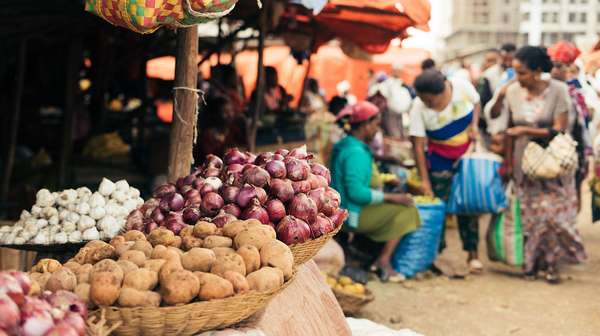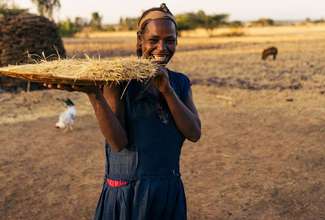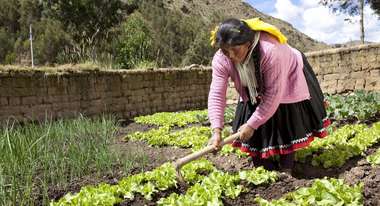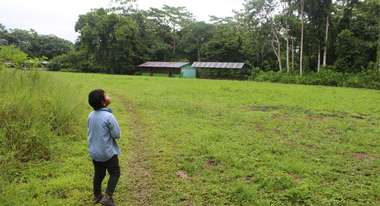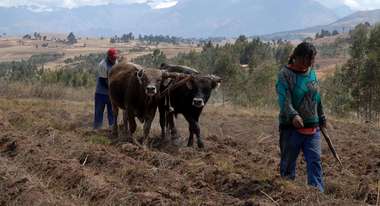Our global food system is not fair, sustainable or crisis-proof.
Right to food, land and a future
In Peru and Bolivia, Welthungerhilfe (WHH) is working with national partners to support indigenous communities in claiming their right to food and land.
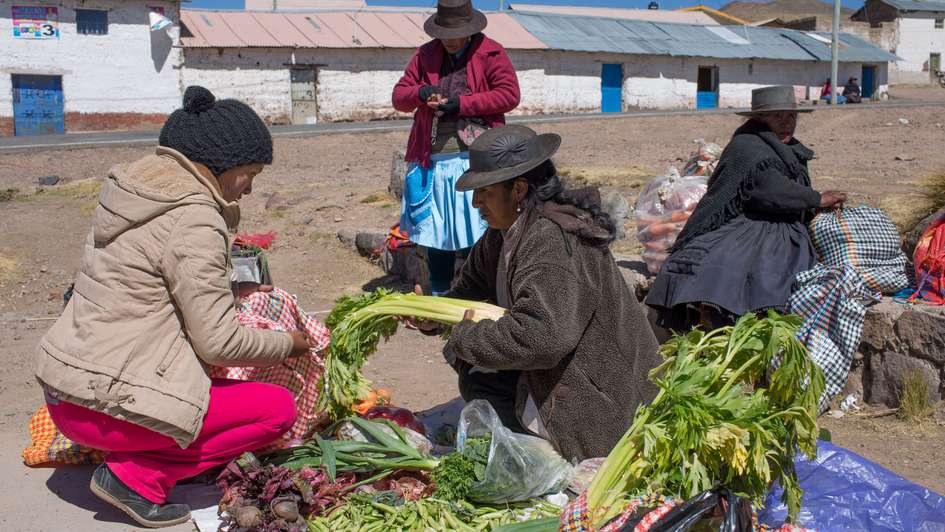
In Peru and Bolivia, WHH works closely with national partners to support Indigenous communities, smallholder farming families and urban communities at risk of poverty. Above all, by supporting their demands for the right to food and land and actively promoting change towards fairer and more sustainable food systems. The economic upturn in both countries in recent years has hardly benefited these communities.
Peru and Bolivia are characterized by poverty and food insecurity
Until the outbreak of the COVID-19 pandemic, the South American countries of Peru and Bolivia were experiencing a significant economic upturn. Both are considered middle-income countries, but the gap between rich and poor is widening. The pandemic has made structural deficits even more apparent, increasing poverty and food insecurity.
While the export of mineral resources and agricultural monocultures is flourishing, valuable ecosystems such as the Amazon rainforest and the Andean moors are disappearing to make way for soy, palm oil, and avocado plantations. The deforestation of the Amazon rainforest through legal and illegal mining, logging and agriculture is not only one of the biggest causes of carbon emissions worldwide but also affects the livelihoods of indigenous communities and small farming families. They are losing their land and their income. Many seek their fortune in the cities but end up in poverty. More and more people are eating mainly cheap, industrially produced and nutrient-poor food, resulting in malnutrition and obesity.
On site: Finding solutions together
Gabriela Silva is the coordinator of the Bolivian part of a transnational project that aims to bring about change towards sustainable food systems. She reports on her work situation in Bolivia – and how this fits in with WHH's strategy.
"When I joined the team at the end of 2021, our cooperation with the two Bolivian partners, Fundación Alternativas and Cosecha Colectiva, had just begun. WHH has its own office in South America in Peru, but in Bolivia, we only work through our partners. To avoid having to commute constantly from Peru, which would not have been good for our finances or the climate, we found the following solution: I would work at Fundación Alternativas for one year and then switch to Cosecha Colectiva the following year.
By being on-site, I can provide ongoing advice on new approaches and methods for the project. Together, we can work on solutions in an agile way. In many countries, WHH increasingly focuses on localization, i.e., strengthening local partners. The model in Bolivia is a compelling example of this."
Sustainable food systems as a goal
WHH is working alongside national partners to counteract this development with a systemic approach. In four transnational projects, we support communities in Bolivia and Peru in claiming their rights, promoting healthy and sustainable nutrition and strengthening political participation. We focus on areas where food insecurity, exclusion and inequality are exceptionally high. The aim is to create sustainable food systems that can withstand the new challenges brought by climate change.
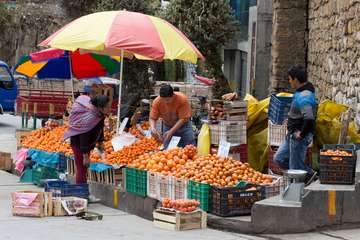
Specifically, we support smallholder families on the outskirts of metropolitan regions in converting their practice to agroecological cultivation and establishing local distribution channels, for example, through government programs such as school meals and locally anchored markets. This support gives the urban population access to freshly harvested and healthy products.
In the Amazon region, we support Indigenous communities in joining forces against illegal land grabbing, corruption and violence and in practicing forest management with Brazil nuts. They collect the nuts in the rainforest without disturbing the ecosystem. We also work with our partners and families to establish distribution channels so that they can generate a solid income.
Food systems at global and local level
The governments of both countries have already put in place several important legal and policy frameworks to promote sustainable production and access to healthy food. Together with our partners, we support communities to ensure these laws and programs are implemented. Change is only possible when all stakeholders are at the table. We support local and national platforms, build bridges, and strengthen networks and strategic partnerships between regional and international stakeholders.
The war in Ukraine has shown how closely our food systems are interconnected globally and locally. The exchange of capacities and knowledge is an essential cross-cutting task in all projects. Strengthening civil society also plays a decisive role in achieving social justice and sustainably securing the population's livelihoods.
Susanna Daag heads WHH's office in Peru. This text was first published in German the Welthungerhilfe magazine (issue 03/2023).






